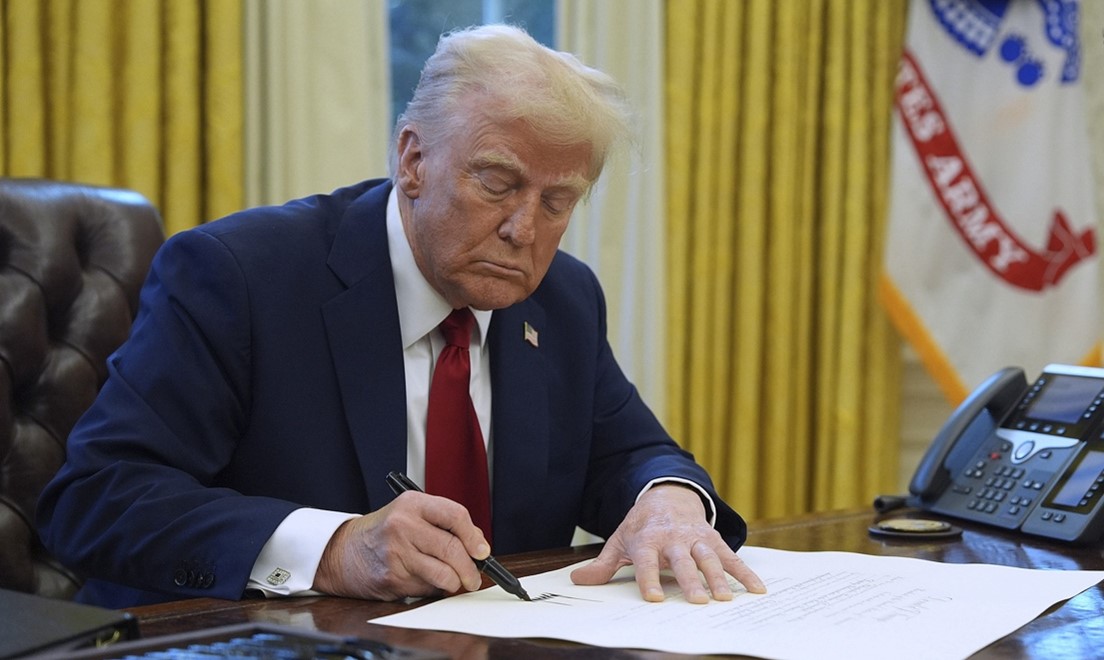But these domestic tariffs will surely hurt the U.S. growth

U.S. President Donald Trump signs a document in the Oval Office at the White House in Washington D.C., the U.S., January 30. 2025. /CFP
But these domestic tariffs will surely hurt the U.S. growth, drive up inflation and lead to spiraling prices of everyday products for American consumers. Due to the catastrophic impacts of tariffs, the U.S. health sector, that despite efforts to build a domestic supply chain relies heavily on international sources for generic drugs, will come under tremendous pressure, making it more vulnerable to drug shortages.
Tariffs will also neutralize Trump's own economic agenda that he, on the campaign trail, billed as a surefire way to cut the cost of living for Americans, making the lives of the most of them a lot tougher.
By pursuing a trade war with China and others, the "tariff man" is meting out a blow to U.S. households and exacting a "self-inflicted wound to the U.S. economy." This "bully strategy" didn't bring manufacturing jobs home before and could contract the U.S. GDP, say economists, by 1.5 percent and 2.1 percent in 2025 and 2026.
While Trump's tariffs are a wake-up call for countries that have hitched their political and economic interests solely with the U.S., underscoring the importance of diversifying their relations, they will exacerbate trade tensions, lower investment, reduce market efficiency and disrupt supply chains, resulting in further erosion of the international trade system.
The first Trump administration's tariffs undermined its exporters' global competitiveness by increasing the input costs of components and parts imported from China. The new trade war could be even more devastating for Americans and the U.S. economy as it covers a much broader range of goods.
Trump's tariff approach is unwise both as a policy tool and a strategy not only because it simultaneously hurts domestic consumers, puts the U.S. exporters at a disadvantage against global rivals and curtails the country's economic prosperity, but also because it damages America's credibility as a reliable trading partner and drives countries to instead trade among themselves.











